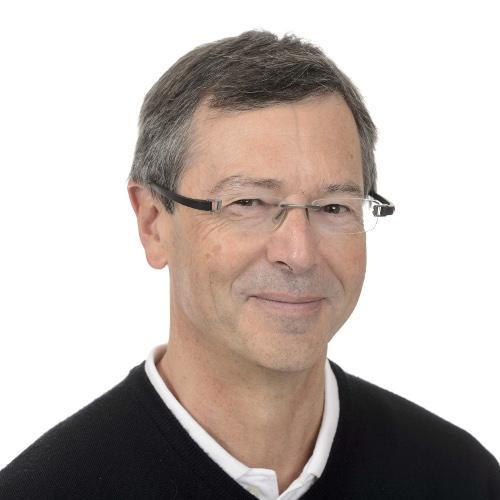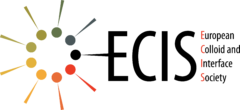
Peter Schurtenberger (Lund)
Peter Schurtenberger is a Professor at the Division of Physical Chemistry at Lund University in Sweden. Peter was educated as a physicist at the ETH, to which he returned after some postdoc years at MIT and Harvard Medical School. His early work on surfactant self-assembly resulted in major contributions to our current understanding of concentrated microemulsions and polymer-like micelles. They also led to the development of a new model for the description of scattering results from semi- flexible polymers that has become the accepted standard and has found widespread applications.
Later in the University of Fribourg, he shifted focus to the investigation of structural and dynamic properties of colloidal suspensions, gels and glasses, and to the application of the thus generated conceptual framework to complex biological and food systems and nanomaterials. In his interdisciplinary research on protein interactions and phase transitions, he made important progress in areas of high biological, physiological and medical relevance (f.e. Physical Review Focus, ‘Clarity through Diversity’, ). The discovery of the existence of equilibrium clusters in concentrated lysozyme solutions, first published in Nature is another pioneering result. It had a profound influence, triggering a rapidly growing number of research groups to devote their work to equilibrium cluster formation and led to awarding him in 2007 the Rhodia Prize of ECIS. Inspired by the success of his creation of the Fribourg Center for Nanomaterials (2006), in 2007 a local businessman made the then largest private donation in Switzerland ever (110 Mio CHF) to create a new institute (Adolphe Merkle Institute) devoted to soft nanoscience and nanotechnology. Within two years Peter as the founding Director was able to develop the institute to more than 50 collaborators.
After his move to Lund University in 2010, Peter again changed his research to focus on the development of more refined models to include directional interactions and colloidal model systems that closely mimic real atoms and complex proteins. He also tackled the question of the dynamics of dense suspensions of complex particles and proteins that led to several publications in high impact journals, for example on a colloidal analogue of virus capsid proteins (Nature Communications, 2014), the existence of a glass transition in eye lens proteins and its possible link to presbyopia (PNAS, 2014), a colloidal model system to study crystal-crystal transitions that play an important role in metallurgy (PRX, 2015), a study on protein dynamics under conditions prevailing in living cells (Science Advances, 2016), the dynamic arrest of colloidal ellipsoids (Science Advances, 2019), and a colloid-inspired approach to understand self-assembling antibodies up to high concentrations (Mol. Pharmaceutics, 2019).
The international recognition of Peter’s work in the field of soft matter and colloid & interface science is not only documented by his citation record (>265 peer-reviewed scientific articles and book chapters, >11400 citations, H-index 58) and invitations (during the last 10 years >150 invited lectures and seminars). In 2013 Peter has received the highly prestigious ERC Advanced Grant in 2013, and he was a member in EU research consortia such as NoE SoftComp and the Infrastructure for Soft Matter project ESMI. As a member of ILL’s Scientific Council, he was instrumental in establishing its Partnership for Soft Condensed Matter. He acted in a large number of advisory boards such as f.e. the Scientific Council of the ILL, the Scientific Council of the Swiss Neutron Source SINQ (Chairman 2000-2003) or the Swiss Light Source (SLS) and a member of the Swiss National Research Council (2007). In all these boards, he actively and passionately supported and promoted the field of colloid and interface science.
Peter has become a Fellow of the British Royal Society of Chemistry, was elected as a foreign member of the Royal Swedish Academy of Sciences (2014), and as a member of the Royal Swedish Academy of Engineering Sciences (2015). From 2017 to 2018, Peter acted as the Founding Director of the Lund Institute of advanced Neutron and X-ray Science (www.linxs.lu.se), for which he has developed the initial concept, the organizational structure and the research and funding strategy.
It has always been of utmost importance to Peter to support young researchers, f.e. by creating structures where they can develop their own network such as the bi-annual European Summer School on “Scattering Methods Applied to Soft Condensed Matter”. Out of his >70 PhD students and postdocs, >40 are still active in academic research and at least 15 hold independent faculty positions.
Promoting soft matter research is and has always been close to Peter’s heart, and he played an active role as a board member in international societies such as the International Association of Colloid and Interface Scientists (IACIS, 1994-1998) or ECIS (1993-1996), for which he also set up the first webpage, acted as the webmaster (1994-2002), the President (1994-1995), the General Secretary (2002-2010), and has been elected as a Honorary Member in 2010.
